SCALES in Textiles (April 8-10, 2025)
A joint conference by ArcInTex & Beyond e-Textiles
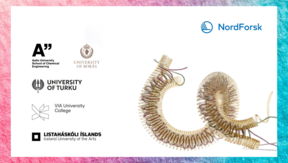
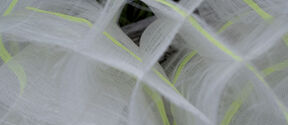
A joint conference by ArcInTex & Beyond e-Textiles
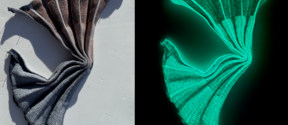
The exhibition features innovative bioeconomy products and prototypes of textiles responsive to temperature and light.
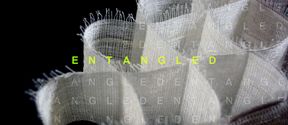
Aalto Virtual Exhibitions
Cooperating partners: Aalto University - VIA University College - University of Borås - University of Turku - Iceland University of the Arts
Full title of the project: Nordic network on smart light-conversion textiles beyond electric circuits (Nordic Programme for Interdisciplinary Research - NordForsk)
Today’s e-textiles require electric circuits and batteries that are brittle, bulky, often prevent maintenance of the textile and hinder customer acceptance. These rigid conductive elements can be made redundant due to the possibilities enabled by the design of novel yarns. In our vision, different photoresponsive molecules and nanoparticles embedded in these new yarns can directly convert photons into heat, actuation, or triggering a colour change, as well as act as catalysers for photocleanable fabrics. Hence, the aim of this project is to develop smart textiles that bypass the need for electric circuits and directly transform solar – or other ambient - illumination into useful action.
Moreover, a major challenge keeping many of the smart textile innovations at bay is that they were developed solely from technological perspectives, forgetting possible use in daily life, user attachment and aesthetics. These parameters are of pivotal importance in developing a sustainable use perspective where it is crucial to work with longevity, high use frequency and durability. The interdisciplinary collaboration between chemical engineering and design is the foundation for our collaborative innovations and it is crucial in transferring the research into practice to have a major societal impact.
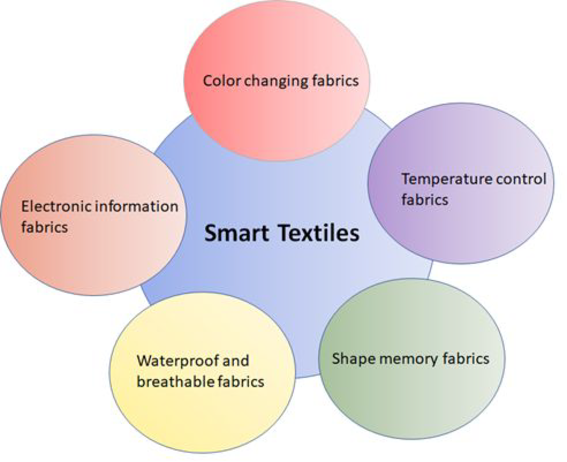
Our network aims to unlock the full commercial potential of smart textiles by opening up ways for light-powered textiles that can find uses, for instance, as sunshine-based dry cleaning or disinfecting of clothes, UV-powered water purification nets, light-collecting tents, and incident irradiation adaptable window shades/curtains. Overall, our goal is to bring together critical mass and to form a network to serve particularly Nordic industries that could benefit from progress in smart textiles. Moreover, we aim to enhance Nordic integrity in exchanging the best practices of teaching design thinking, as well as facilitating interdisciplinary collaboration between scientists, engineers, designers and artists.
This project is a consortium project that is being implemented in collaboration with the University of Turku (UTU), VIA University College (VIA), University of Borås (UB), and Iceland University of the Arts (IUA).
'Beyond e-Textiles' project was finalised in April 2025. Currently, the research work and dissemination activities are being implemented under 'NorTex' project (Towards Nordic Center of Future Textiles – fostering network expansion and conceptualizing interdisciplinary methodology) funded by NordForsk (Nordic Programme for Interdisciplinary Research – Additional Grant, project number 202996).
In order to support the intersection between science, design and fine art, we want to apply three programmatic perspectives as the basis for the research of the network:
The research is built around three objectives as follows. The project activities for each objective are carried out simultaneously, and the purpose of each objective is to research technical and aesthetic functionality of fiber/yarn, fabric and possible use.
Objective (O1): creating a library of yarns exhibiting five different photoconversion properties, preferably operated at different wavelengths of light, and, if desired, integrated into a multifunctional yarn.
-Our materials concepts will include (i) photothermal effect, (ii) photocatalysis, (iii) luminescent solar collection, (iv) photochromism and (v) photoactuation.
Objective (O2): translating photoresponsive filaments and yarns into textiles, so that the desired property can be simply turned on by shining the surface with the right wavelength of light or by sunlight or other ambient illumination.
-This will be realized by either weaving or knitting together different mono-or multifunctional yarns. Here, technology meets design: we research the potential by adding design qualities to the yarns and fabrics, and when possible, test the fabrics for relevant features, such as abrasion resistance, light fastness, and washing/sweat durability.
Objective (O3): utilizing prototype textiles for demonstrations of new fabrics for clothing and interior where the new functionalities give added value.
-The prototyping enables us to set-up and suggest different scenarios built on various textile qualities, pointing to potential and relevant use including perspectives for reuse/recycling. For that we apply a system building on experiments in artistic research.
The target of our project is to develop photoresponsive yarns and functional fabrics for future use. We aim to also initiate a technology transformation from e-textiles powered by electricity to textiles that are directly powered by solar or other ambient illumination. On a more general level, our ambition is to renew science and design of smart textiles by turning the focus of the community towards these novel ways of making autonomously-powered soft materials.
Multifunctional Materials Design research group was launched in March 2019 as part of the Department of Chemistry and Materials Science (School of Chemical Engineering, Aalto University). This department was established by merging units of chemistry and material scientists that share common interests in micro-, nano- and atomic-scale engineering of compounds and materials. The strengths of the department include solid understanding of fundamental chemistry, seamless combination of experimental and computational methods, agile ability to collaborate with other departments and an excellent international collaboration network. Department also works closely with the Department of Bioproducts and Biosystems, where Ioncell yarns derived from recycled cellulose materials were originally developed. This unique collaborative environment is excellent for hosting the development of new photoresponsive yarns of Beyond e-Textiles.
Team leader: Jaana Vapaavuori, Assistant Professor (Multifunctional Materials Design)
Team members:
Zahra Madani, Project Researcher, Doctoral Student (Multifunctional Materials Design)
Giulnara Launonen, Project Coordinator
Multifunctional Materials Design, Department of Chemistry and Materials Science, School of Chemical Engineering (CHEM), Aalto University
The Faculty of Technology is a new faculty at the University of Turku that started operating in the beginning of 2021. The Department of Mechanical and Materials Engineering is a unique combination of mechanical engineering and materials engineering with contemporary research and teaching.
The research group of Prof. Kati Miettunen studies solar energy materials and systems. The focus of the research is improving stability of emerging solar technologies as well as designing sustainable materials, e.g. bio-based alternatives. Prof. Miettunen is specialized in developing functional materials for emerging solar cells. In the 'Beyond e-Textiles' project, the expertise is used for the development of light-responsive functional materials.
Team leader: Kati Miettunen, Professor (Materials Engineering)
Team members:
Alicja Lawrynowicz, Project Researcher, Doctoral Student (Materials Engineering)
Emilia Palo, University Teacher (Materials Engineering)
Research in Solar Energy Materials and Systems (Department of Mechanical and Materials Engineering, Faculty of Technology)
VIA University College, located in the Central region of Denmark, educates future engineers, designers, among others. More than 40 degree programmes are offered to 18,500 students at 8 campuses across the region. In addition, VIA employs 2,100 faculty and staff, and has 20,000 annual participants in further education which makes it the largest institution for further education in Northern Europe. VIA has 7 research centres. 'Beyond e-Textiles' project will be anchored in the research programme 'Product Design & Materials Technologies' at the R&D Centre for Creative Industries and Professions.
Team leader: Anne Louise Bang, Senior Associate Professor (Design & Sustainability)
Team members:
Inger Marie Ladekarl, Associate Professor
Lena Kramer Pedersen, Associate Professor
Malene Pilgaard Harsaae, Assistant Professor
Poul-Erik Jørgensen, Research, Development & Innovation Manager (Product Design & Materials Technology)
Tina Cecilie Bull Nielsen, Assistant Professor
Research and Development Centre for Creative Industries and Professions
The Swedish School of Textiles (SST) was founded in 1866 and currently has about 900 students from all over the world in seven undergraduate and seven master's programmes. The school is a part of the University of Borås (Sweden). SST is based in the Textile Fashion Center – a newly renovated building with lecture halls and textile workshops which also houses the prestigious Textile Museum of Sweden, businesses, the Fashion Incubator, the Fashion Gallery, and Science Park Borås.
The SST programmes focus on textiles and are divided into three areas: design, engineering, and management. The school's facilities feature modern lecture halls and well-equipped laboratories that cater for everything related to textiles. Research is of a high international standard and focuses on sustainability – how can our research contribute to a better world? The project 'Beyond e-Textiles' is connected with the existing research programme of Smart Textiles (www.smarttextiles.se) and the ArcInTex Academic Network (www.arcintex.se).
Team leader: Delia Dumitrescu, Professor (Textile Design)
Team members:
Riikka Talman, Postdoctoral Researcher
The Department of Design and Architecture at the Iceland University of the Arts places an emphasis on students knowing about the ideological premise of design and design history and that they can, on the basis of their knowledge, take an informed stance on the environment and society. Design, in a way, revolves around seeing the possibilities in what is yet to take place.
Associate professor Thomas Pausz researches future scenarios for material and ecological cultures and the impact of design and technologies on the environment. His projects are executed in collaboration with scientists and are mediated through exhibitions and publications. He is the Programme Director of the MA Design: Explorations and Translations. For the 'Beyond e-Textiles' project, Thomas Pausz will provide guidance and expertise in speculative design methods and in developing scenarios around material innovation.
Team leader: Thomas Pausz, Associate Professor (Design)
Team members:
Ragna Sigríður Bjarnadóttir, Assistant Professor
Iceland University of the Arts
MA Design: Explorations & Translations (Department of Design and Architecture)
In order to get beyond e-textiles, it is necessary to leave the often-used linear way of product development, in which each phase leads to the next one (like in a stage gate model), and which usually have a narrow focus on either fiber, fabric or end-product. Therefore, we will adopt and encourage to an iterative and exploratory process, managed by a series of touchdowns in the form of biannual collaborative workshops. We want to research and develop prototypes for fiber, fabric and related future products in parallel, in order to benefit from the potential that lies in ‘cross-pollination’ between the subject areas. Each workshop is concluded with an adjusted speculative scenario setting the goal for the next period of research in fiber, fabric and products, respectively. Thus, this project will be a truly exploratory study, where we allow ourselves to benefit from and adjust the process and the direction based on insights achieved throughout the project period.
Aalto University (online) / May 2021 [First biannual workshop of the 'Beyond e-Textiles' project]
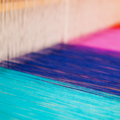
University of Turku / November 2021 [Second biannual workshop of the 'Beyond e-Textiles' project]
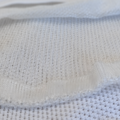
VIA University College / May-June 2022 [Third biannual workshop of the 'Beyond e-Textiles' project]
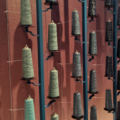
University of Borås / November 2022 [Fourth biannual workshop of the 'Beyond e-Textiles' project]
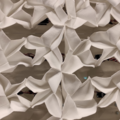
Aalto University / June 2023 [Fifth biannual workshop of the 'Beyond e-Textiles' project]

Iceland University of the Arts / November 2023 [Sixth biannual workshop of the 'Beyond e-Textiles' project]
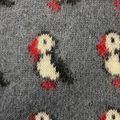
VIA University College / June 2024 [Seventh biannual workshop of the 'Beyond e-Textiles' project]
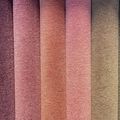
University of Turku / October 2024 [Eighth biannual workshop of the 'Beyond e-Textiles' project]
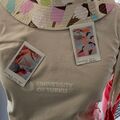
Aalto University / April 2025 [Ninth biannual workshop of the 'Beyond e-Textiles' project]
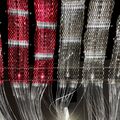
Our interdisciplinary approach combining photophysics and -chemistry, materials science, textile engineering, product design, and visual arts, will put an increased focus on the technological production of smart textiles, combined with exploring and prototyping scenarios for future use and application. We emphasize the importance of working collaboratively, instead of in our respective silos defined by research and expertise areas, to allow the fields to influence on and learn from each other, and thereby encourage to and foster innovation. All in all, the aim of our network is both to transform the concept of smart textiles into something far beyond the limits of current e-Textiles, but also be a transformative force for the conventional ways of how science and design have been done.
Our goal is for this network to serve as a seed for a larger community working on smart light-powered textiles spreading from Nordic countries towards global impact and participation. We are engaged into very tight Nordic collaboration through our biannual collaborative workshops, and special efforts will be made to identify potential new members for our community in the Nordics and beyond.
The 5th iterative workshop of the 'Beyond e-Textiles' project

Prototype exhibition of the 'Beyond e-Textiles' project

Open lecture by Prof. Paul McElheron (VIA University College, Denmark).
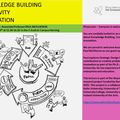
Nordic partners' visit to Aalto University in November 2021
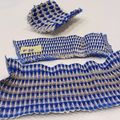
Group led by Professor Jaana Vapaavuori

Nordic network on smart light-conversion textiles beyond electric circuits (Beyond e-Textiles) | Nordic Programme for Interdisciplinary Research

AaltoTEXTILES is a network linking all textile-material related activities within design, technology and business at Aalto University

Autonomously adapting and communicating modular textiles
